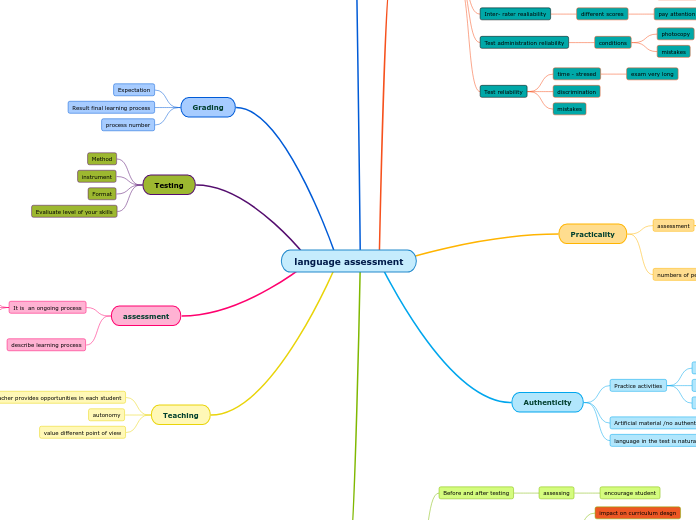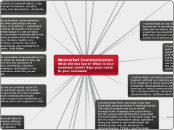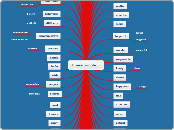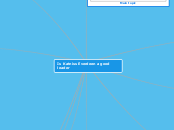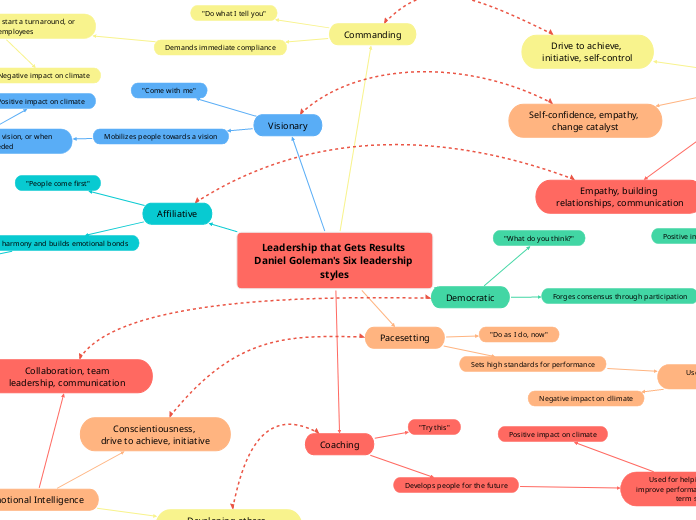por Ingrith Jimenez 4 anos atrás
792
language assessment
Effective language assessment requires balancing authenticity, validity, reliability, and practicality. Authentic materials and contexts enhance the natural use of language, making assessments more reflective of real-life communication.
